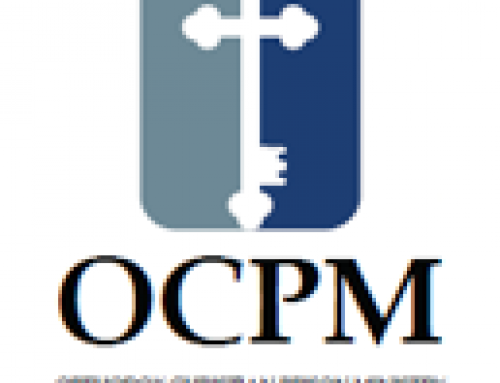This post was originally published on this site
Introduction
Today’s discussion will lead us through 2 Corinthians 4:14-21 leaning heavily on St. John Chrysostom’s commentary on this pericope.
Before we begin our discussion, let’s begin with 120 seconds of silence. Take this chance to come into the presence of God and his saints as a group. Sit still. Breathe slowly and deeply. Say the Jesus prayer.
Take a few moments to read this verse and ponder on the words:
Blessed are the peacemakers, for they shall be called the children of God. – Matthew 5:9
Part I: No Longer for Ourselves
Reflection
For the love of Christ compels us, because we judge thus: that if One died for all, then all died; and He died for all, that those who live should live no longer for themselves, but for Him who died for them and rose again. – 2 Corinthians 5:14-15
Contemplate for a moment the depth of Christ’s love for us. Think about all that humanity had offered God by the time of the crucifixion: the waywardness of the people of Israel, Herod’s cruelty, the Pharisees’ scorn, the disciples’ confusion and distrust, Judas’ betrayal, the Sanhedrin’s condemnation, Pilate’s indifference, the crowd’s bloodlust. And we do not find ourselves somehow separate from this reality but instead, continue the patterns of sin in the world. And yet, Jesus Christ willingly out of love for His creation, accepted the shame of the Cross and the sentence of death.
If we accept how profoundly Christ loves us, we find ourselves, in St. Paul’s words, compelled to respond:
He is saying, you see, if he died for the sake of us all, he died for the purpose that we the living might live no longer for ourselves but for him who died and rose for us. Accordingly, let us heed the apostolic exhortation, not living for ourselves but for him who died and rose for us. – St. John Chrysostom
Discussion Questions
- What makes it easy for us to lose sight of the immensity of Christ’s love?
- How does the kind of compulsion St. Paul speaks about differ from force?
Part II: A New Creation
Reflection
Therefore, from now on, we regard no one according to the flesh. Even though we have known Christ according to the flesh, yet now we know Him thus no longer. Therefore, if anyone is in Christ, he is a new creation; old things have passed away; behold, all things have become new. – 2 Corinthians 5:16-17
One way that we respond to Christ’s love is to recognize the way in which His love extends to every person and His image is imprinted in all. We can no longer let the divisions of the flesh (race, gender, status, etc—think Galatians 3:28) remain barriers between us. Our union with Christ makes us new and provides for us a new perspective on the rest of creation.
Even if believers are still in their earthly bodies, we do not relate to them in that way, because the life according to the flesh has been transcended. We have been born again by the Spirit and have learned a different kind of behavior, which is that of heaven. It is Christ who has brought about this change. – St. John Chrysostom
The way of heaven is the way of unity, and this unity is brought about by Christ working within us, inspiring us with His Spirit to live without reference or attachment to worldly division. There is no category of person that is not overcome when one is united to Christ.
Discussion Questions
- How would you apply the instruction to regard no one according to the flesh to today’s society and its divisions?
- What actions can we take to promote peace and unity in our own families and communities?
Part III: Ambassadors for Christ
Reflection
Now all things are of God, who has reconciled us to Himself through Jesus Christ, and has given us the ministry of reconciliation, that is, that God was in Christ reconciling the world to Himself, not imputing their trespasses to them, and has committed to us the word of reconciliation. Now then, we are ambassadors for Christ, as though God were pleading through us: we implore you on Christ’s behalf, be reconciled to God. For He made Him who knew no sin to be sin for us, that we might become the righteousness of God in Him. – 2 Corinthians 5:18-21
Because the love of Christ through the Cross has made us new, we are not only reconciled to God the Father but also called to participate in the reconciliation of the rest of humanity and creation with Him. As members of His Body, the Church, we become ambassadors, representatives of the Kingdom to a world that does not yet know the love we have experienced.
Furthermore, it is the same immense love that led Christ to the Cross in spite of our sins that drives Him not to abandon us in our guilt but instead to invite us to participate in His saving work:
The Son Who came to reconcile, His True and Only-Begotten, was slain, yet not even so did the Father turn away from His murderers; nor say, I sent My Son as an Ambassador, but they not only would not hear Him, but even slew and crucified Him, it is meet henceforth to leave them to themselves: but quite the contrary, when the Son departed, He entrusted the business to us. – St. John Chrysostom
While we may have justly deserved abandonment, God does not abandon us and likewise charges us not to abandon our fellow man. Concluding his commentary on this passage, St. John Chrysostom comments,
Reflecting then on these things, let us fear these words more than hell.
The work of reconciliation, of overcoming division, of peacemaking is both serious and blessed. And yet it is too often ignored when to cling to “our people” seems safer, easier, or more advantageous. May the love of Christ compel us to live differently.
Discussion Questions
- What qualities do you think define an ambassador for Christ?
- What effects do our various worldly allegiances have on our faithfulness to Christ? Do you think there is any proper role for worldly allegiance within the Christian life?
- What new thoughts or questions has this discussion raised for you?
Closing Prayer
Let all believers turn aside from violence and do what makes for peace. By the strength of your powerful arm save your people and your Holy Church from all evil oppression; hear the supplications of all who call to you in sorrow and affliction, day and night, O merciful God, let their lives not be lost, we pray you, hear us and have mercy on us.
But grant, O Lord, peace, love and speedy reconciliation to your people whom you have redeemed with your precious blood. Make your presence known to those who have turned away from you and do not seek you, so that none of them may be lost, but all may be saved and come to the knowledge of the truth, so that everyone, in true harmony and love, O long-suffering Lord, may praise your all holy Name.



